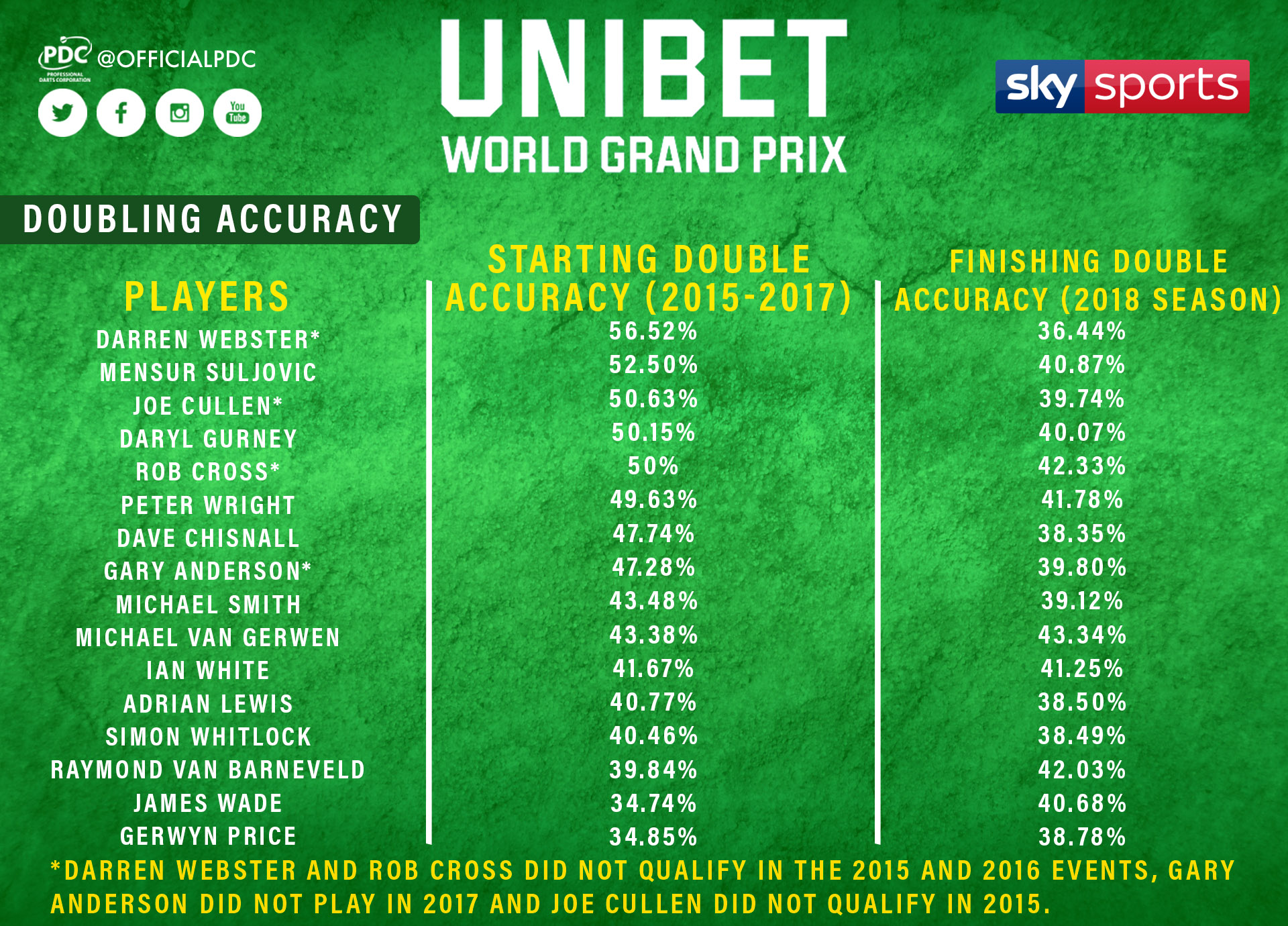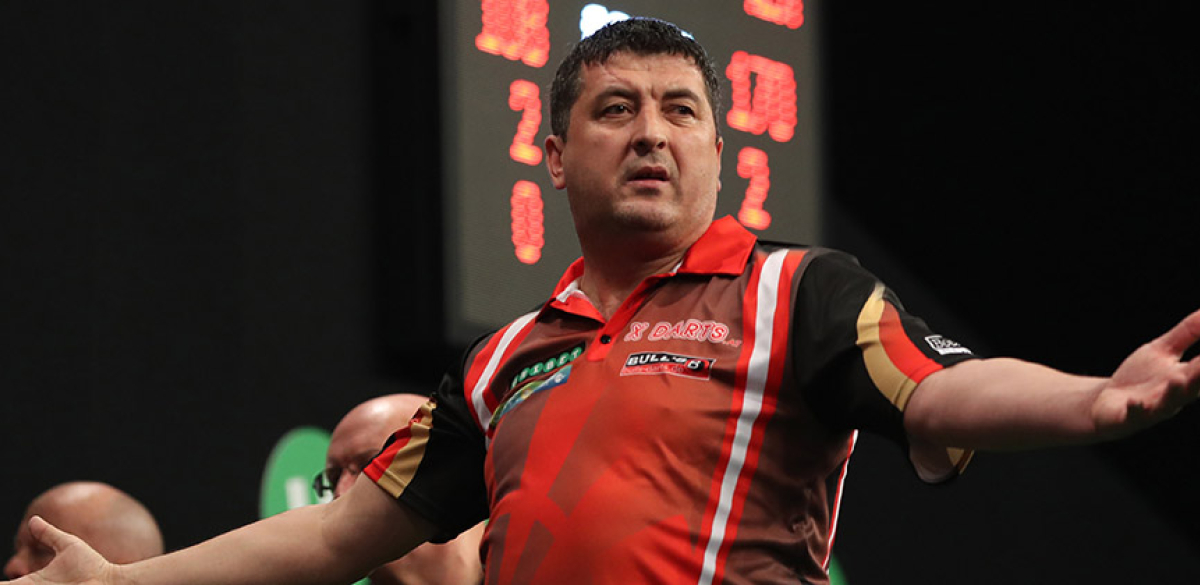
Christopher Kempf, the statistical analyst of the PDC, takes a look at which players are most likely to be quickest off the mark at the Unibet World Grand Prix.
Being the only tournament on the PDC calendar in which players must start the leg, as well as end it, on a double, the World Grand Prix is among the most compelling events in the world of darts.
Along with the short format in sets, the raucous Dublin crowd, and the prospect of a bullseye-finish nine-dart leg, the Grand Prix rewards those players who can fight for every leg from the first dart to the last.
Though the double-start does not eliminate the advantage of throwing first, it reduces its effect by almost one quarter.
Each leg is thus subject less to the alternating pattern of holds and breaks, and can be easily won on the merit of having hit the starting double first, even against the throw.
A player who hits a starting double with his first dart of the leg wins 58% of the time; even one missed dart is enough to make that player's opponent the favourite in the leg.
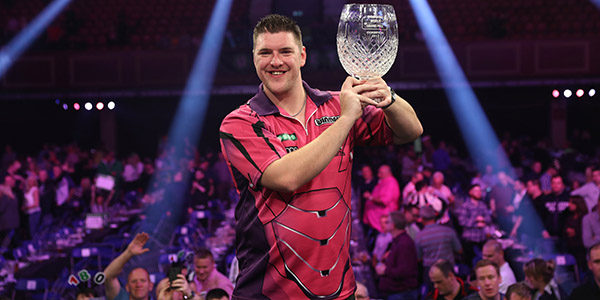
Daryl Gurney, the reigning World Grand Prix champion, has made a clear example of the need to get away quickly.
His extraordinary 2017 campaign saw him hit nearly 57% of starting doubles, hitting his preferred double 16 with the first dart in 53% of legs and within the first visit 88% of the time.
Since players are free to attempt any double they like with their first dart, does the choice of starting double play a role in a player's success in the leg?
The answer is no - players who have thrown for double 16, 14, or 10 have had no long-term disadvantage relative to those who attempt the widely-preferred double 20.
Because double 20 enables players to attempt nine-dart finishes - of which there have only been three in the history of the World Grand Prix - it entices many players to attempt what would otherwise be a second- or third-favourite double.
But 20 has a lower rate of PDC-wide success as a finishing double than 16 (D16 adherents being expected to hit 3 more doubles per 100 darts than D20 fans), and the extra eight points gained from hitting double 20 rarely are the deciding factor in determining the winner of the leg.
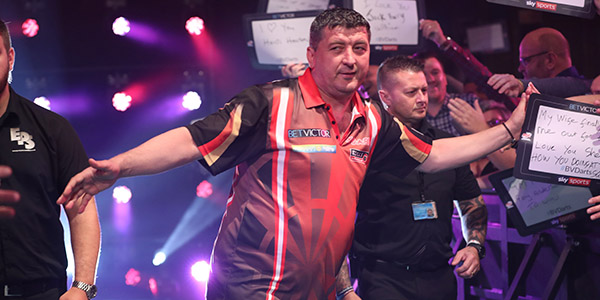
Mensur Suljovic, who will be making his fourth trip to Dublin for the World Grand Prix, has demonstrated that attempting a double with which you are comfortable is far more important than the extremely unlikely possibility of attempting a nine-darter.
In his first three Grand Prix campaigns, the Austrian star has hit at least 50% of his starting doubles each year by relentlessly attempting double 14.
Having precluded himself from attempting a nine-darter, Suljovic was nonetheless one of only three players last year to have started a majority of his legs without a missed double.
What can we expect from world number one Michael van Gerwen, who was knocked out of last year's World Grand Prix by John Henderson, and has been eliminated in his first match in 3 of the past 7 TV ranking events?
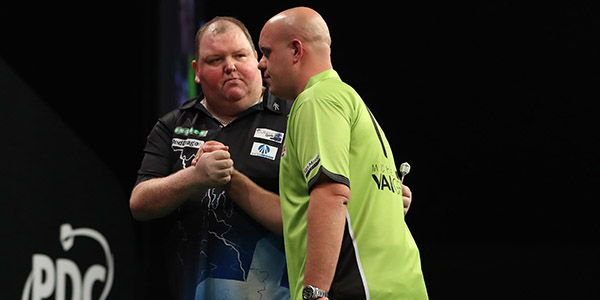
Van Gerwen, the world's most accurate player on the treble 20 and treble 19, has never defended any of his three Grand Prix titles, and is often ill at ease with the very short format of the first round.
Last year, despite winning 7 legs to the Scotsman's 6, the Dutchman missed 29 starting doubles, including 17 in the first set alone, and lost 2-1 in sets.
The player who is stronger overall often comes out the loser in a best-of-three sets match, in which winning the right legs is more important than winning more of them, as Henderson proved last year.
Because MvG is most dangerous in the longer-format events in which he has time to recover from a slow start, his first-round opponent Steve Lennon likely has the best chance of stopping MvG's Grand Prix campaign in a match which can be as short as six legs.
Many players who have struggled to find success in other events come into their own at the World Grand Prix, while many players that one would expect to do well in Dublin unaccountably struggle.
Ian White, for instance, regularly tops lists of PDC players with the highest double percentage but has only won three matches in his six Grand Prix appearances.
Dave Chisnall, on the other hand, is renowned for his finishing inconsistency but has hit 48% of his Grand Prix starting doubles over the past three years.
This unpredictability, enhanced by the double-start criterion and the short set format, makes the Grand Prix perhaps the most exciting event in all of darts.
Follow Christopher Kempf on Twitter through @Ochepedia
